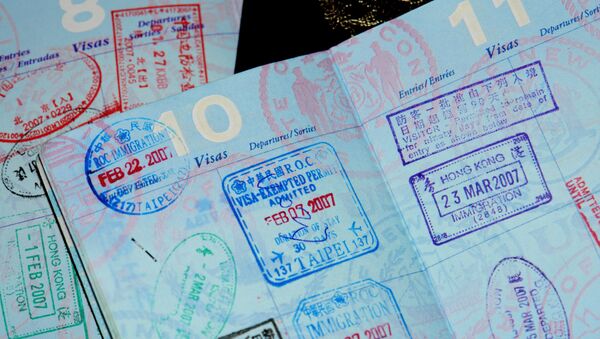In addition to his US citizenship, 48-year-old Whelan is also a British national, the Russian Foreign Ministry and UK Foreign Office have confirmed.
The news comes a day after confirmation by Canadian officials that their consular officials in Russia were "aware that a Canadian citizen" had been detained in Moscow, leading to speculation that Whelan may also hold a Canadian passport. Canadian media reported that Whelan was born in Ottawa in 1970 before moving to the US. Whelan's twin brother David could not confirm whether Paul had retained his Canadian citizenship, although Canadian nationality law extends citizenship automatically to anyone born on Canadian soil.
The intrigue surrounding the case, which has been exacerbated by conflicting claims by Whelan's family and a former employer about the real reason for his trips to Russia, as well as revelations that he served several tours of duty in Iraq as a marine and been court-martialed for multiple counts of larceny and stripped of his rank, has been the subject of considerable interest among Russian social media users over the New Year's holiday. More than anything, however, Russians have been curious about just which country Whelan was 'representing' during his alleged failed espionage mission.
"First he's a Canadian. Now it's a Brit. What next? Honduras?" one user joked, reflecting the general tone of Russian Twitter to Thursday's news about Whelan's UK citizenship. "Bond, James Bond has many passports," another quipped.
"In other words, with the arrest of a Yankee we also responded to the Brits for the Skripals," another added, referring to last year's poisoning of a former Russian spy in the UK which sunk Russian-UK relations to their lowest point since the Cold War.
Others turned their attention to the speed at which Russian authorities granted US officials consular access to Whelan, recalling the case of Russian national Maria Butina, who was arrested in the US on charges of being an 'unregistered foreign agent' last year, and who did not receive access to the Russian consul until a much later date.
"Kind of quick, no? Our nationals have been kept 'marinating' for up to half a year's time until they are provided consular access. Or do we fear State Department sanctions?" one user angrily wrote. "Yeah, it's not easy serving as an example to others on how to comply with international agreements", another chimed in.
Latest Unfriendly Steps by Washington
For his part, Duma committee on international affairs deputy chairman Alexei Chepa similarly praised the FSB's effectiveness. "The detention speaks of only one thing – that our security services sprung into action quickly. Counterintelligence is functioning normally and serves to put a check on espionage activity," he said. At the same time, Chepa warned that the US may yet respond to Whelan's detention, possibly by detaining another Russian national on US soil.




